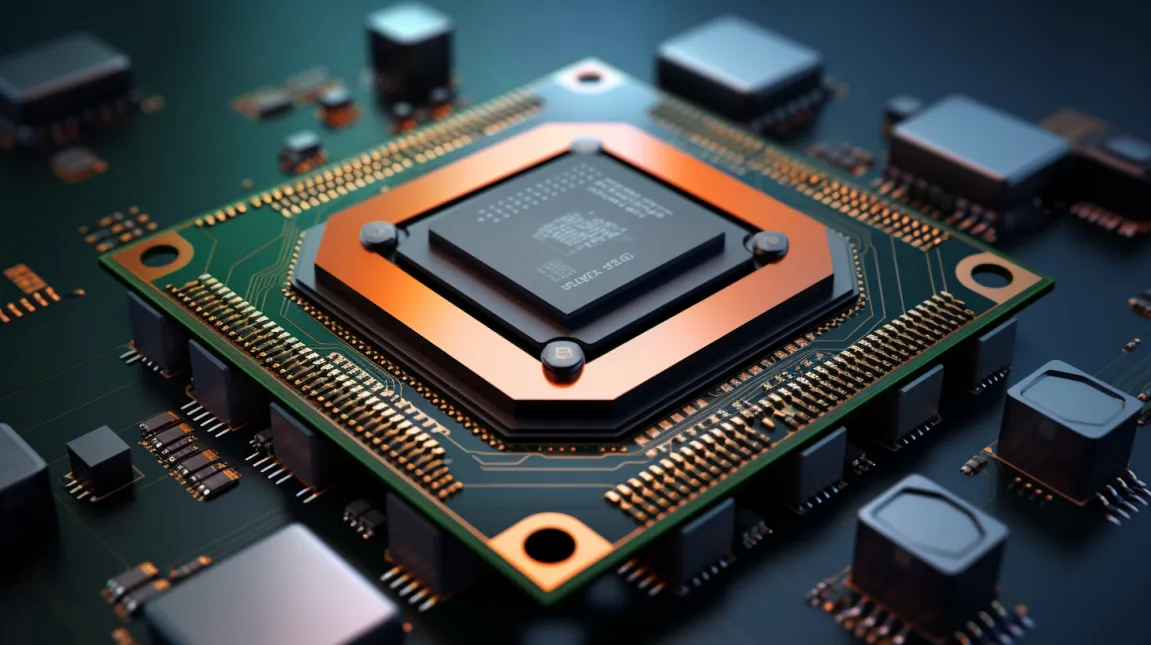Table of Contents
Intel, the world’s largest chipmaker, has unveiled a new lineup of computer chips that are designed to power artificial intelligence (AI) applications, ranging from generative models to gaming. The company hopes to challenge the dominance of Nvidia and AMD, the leading providers of AI chips, and to capture a bigger share of the fast-growing AI market.
What are the new AI chips from Intel?
Intel has announced three new AI chips that are aimed at different segments of the AI market:
- Gaudi3: This is an AI chip for generative AI software, which are programs that can create new content, such as text, images, or audio, based on existing data. Gaudi3 will launch next year and will compete with Nvidia’s H100 and AMD’s MI300X, which are the preferred choices for companies that run large and complex AI models, such as OpenAI’s ChatGPT, a chatbot that can generate realistic and coherent conversations. Intel has been developing Gaudi chips since 2019 when it acquired Habana Labs, a chip developer based in Israel. Intel claims that Gaudi3 will offer better performance, efficiency, and scalability than its rivals, and will support various AI frameworks, such as TensorFlow and PyTorch.
- Core Ultra: This is a chip for Windows laptops and PCs, which are expected to become more AI-enabled shortly. Core Ultra will include a specialized AI part called an NPU (neural processing unit), which can run AI programs faster and more efficiently than the CPU (central processing unit). Core Ultra will not be able to run large and power-hungry AI models, such as ChatGPT, without an internet connection, but it will be able to handle smaller and simpler tasks, such as Zoom’s background-blurring feature or facial recognition. Core Ultra will also have enhanced gaming and graphics capabilities and will be built using Intel’s 7-nanometer process, which is more advanced and power-efficient than its previous chips. Core Ultra will be available in laptops that hit stores on Thursday.
- Xeon: This is a chip for servers, which are used by large organizations, such as cloud companies, to run and deploy AI applications. Xeon is Intel’s flagship server chip, and the company has announced its fifth-generation version, which will also include an NPU for faster and better AI performance. Xeon will be particularly good for inferencing, which is the process of deploying an AI model to make predictions or recommendations, such as Netflix’s movie suggestions or Amazon’s product recommendations. Inferencing is less power-hungry than training, which is the process of creating and improving an AI model, such as ChatGPT. Xeon will often be paired with Nvidia’s GPUs, which are the dominant choice for training AI models, in the systems that are used for AI applications.
Why are AI chips important for Intel?

AI chips are important for Intel because they represent a huge and growing opportunity for the chip industry, as well as a major threat to Intel’s traditional business. AI chips are also expected to drive the demand for other types of chips, such as memory and storage, as AI applications require more data and processing power.
However, Intel is facing fierce competition from Nvidia and AMD, which have been leading the AI chip market with their GPUs, which are specialized chips that can perform parallel computations faster and better than CPUs. Nvidia and AMD have also been expanding their AI chip portfolio with new products, such as Nvidia’s Grace and AMD’s Instinct, which are designed to compete with Intel’s CPUs and NPUs.
Nvidia and AMD have also been gaining market share and customer loyalty, as their AI chips are widely used and supported by various AI platforms and developers. Nvidia’s stock has been up nearly 230% year to date, while Intel’s stock has risen 68%.
Intel’s CEO, Pat Gelsinger, who took over the company in February, has made AI a key priority for the company and has vowed to catch up and surpass its rivals in terms of chip technology and innovation. Gelsinger has also announced a new strategy to become a chip manufacturer for other companies, such as Qualcomm and Amazon, and to collaborate with other chipmakers, such as IBM and TSMC, to leverage their expertise and capacity. Gelsinger has set a goal to regain Intel’s leadership in chip manufacturing by 2026, and to become a leader in AI by 2030.
“We’ve been seeing the excitement with generative AI, the star of the show for 2023,” Gelsinger said at a launch event in New York, where he announced the new AI chips. “We think the AI PC will be the star of the show for the upcoming year.”
The new AI chips from Intel are a sign of the company’s ambition and determination to compete and win in the AI market and to challenge and disrupt the dominance of Nvidia and AMD. However, the new AI chips from Intel will also face many challenges and uncertainties, such as customer adoption, technical performance, market competition, and regulatory compliance.
Therefore, it remains to be seen whether Intel can succeed and thrive in the AI era, or whether it will fall behind and fade away.
RELATED NEWS
AMD AI Event: How the Advancing AI Launch Will Revolutionize the Industry
AMD Predicts $45B AI Chip Market by 2024